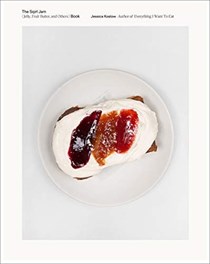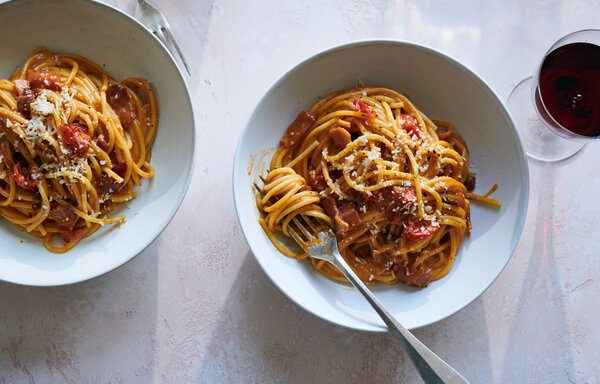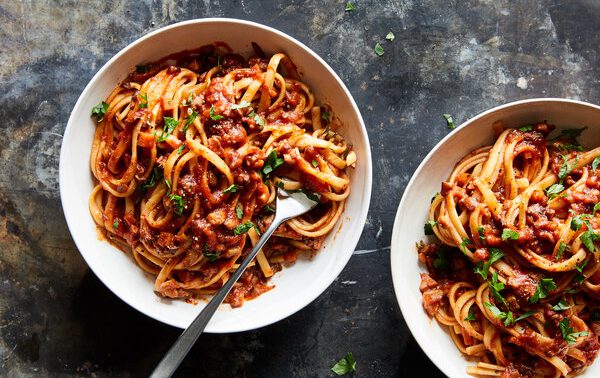Food, times are changing and the importance of our words
February 25, 2021 by JennyFor me, and many others like me, food and cooking has been the great equalizer. Bringing folks of all ethnicities and beliefs around the table to share experiences and build a bridge to better understanding and acceptance of our differences. In doing so, we may learn that we aren’t so very different after all.
But it seems, especially in the last year, the culinary world is using food as a catalyst for battle. In doing so, driving us all further apart. Perhaps it all stems from the injustice and suffering in the world and we are lashing out at what we can but I think we need to take a step back and put ourselves in another person’s shoes.
Last year, I shared this article Order up, hold the narrative after reading about complaints from the public about too many words before getting to the recipe. I’ve noticed on my social media people are still voicing their opinions/complaints about this issue.

This week, I’ve shared on my Kindle deals post a great sale on The Sqirl Jam Book: Jelly, Fruit Butter, and Others. Most of us are aware of the controversy regarding the mold situation at the restaurant. There was a comment made on the Kindle post in one of our groups that stated we should not encourage the sale of a book that will make members sick. First of all, the book has great recipes and 59 five star reviews on Amazon. And secondly, after the issue at the restaurant, Koslow issued an apology and has made changes.
Darcie said it best in this comment: Should we not allow people to redeem themselves? After the allegations came to light, Koslow did issue an apology. Since that time, the restaurant has made changes and it has passed inspection.
I would never support a cookbook author (or anyone for that matter) that has made horrific life choices – we all know who they are – but Koslow’s recipes in the book do not call for allowing the jams to sit in a walkin and removal of mold as a cost saving measure. The recipes are for everyday home use. I am of the opinion that we all can make our own choices about purchasing the book or not.

I’ve seen social media rage when a New York Times (NYT) recipe called for adding tomatoes to a carbonara – photograph above from the NYT. The outcry was: Tomatoes do not belong in a carbonara! If someone wants to change up a recipe isn’t that a good thing? More dishes to try – perhaps the issue is calling it carbonara – perhaps if the NYT called it Smoky Tomato Pasta with Bacon then people would be less enraged? Or, perhaps they are using this terminology as a result of SEO (Search Engine Optimization).

Another go around yesterday about Vegan Bolognese (photo above from the NYT) – again another example of SEO – if a person is looking for a vegan option for Bolognese sauce the recipe source/blog needs to have “Bolognese” in the recipe title to come up. Another example of perhaps misplaced rage was last July, when many were upset about a recipe calling for a stand mixer!
Recently, star blogger, Tieghan Gerard, labeled a chicken soup fusion dish as pho. She has since renamed the dish Easy sesame chicken and noodles in spicy broth in light of the accusation of cultural appropriation. I try to be very respectful of all cultures and I agree that she wasn’t thinking when she titled the dish pho. I truly don’t believe that Tieghan was trying to pull a fast one. We should all be aware of the political and social aspects of the words we use and the actions we take but I also think we need to be a little more tolerant of these slip-ups.
I fear creativity will be diminished if recipe developers and sites are fearful of making a misstep. I weigh each word I write and sometimes hold my breath that someone out there may misinterpret my meaning. Often times, I over explain as a mechanism to avoid a misunderstanding. The public can be a harsh critic and yet a loving support system. Just the thought of being misunderstood is terrifying.
There are instances when cancel culture (or, as I like to call it, “consequences”) is appropriate and we need to light the torch and fight for what is decent and ethical. But there are occasions (or opportunities for growth) when it is okay to kindly point out a misstep perhaps privately in an email or message to someone and move on without calling out “off with their heads” in a public forum (or even just moving on with no comment).
A personal example for me. I have been very ill for a while now. My house is a cookbook hoarder’s dream and I have bins of cooking ingredients and gadgets to organize from the last six months. Just this Sunday I felt well enough to start going through books and purging. My husband has been patient with this scenario but Tuesday when he tried to talk to me calmly we ended up screaming at each other instead of communicating. I wound up in tears and my day was ruined. He asked what he could have done differently and I said that he simply could have said “Jenny, I know you have been sick for a while and that this weekend you started to work on the piles of books. But let’s talk about how we can make this situation work for us. Instead of coming at me stating “We need to talk about this house” and flapping your arms in disgust.” Note: It was my perception of how he stated this not his true actions. We ended up talking and working out a solution. The divorce is coming up soon. (Joking, we are working together to make sure both our needs are met.) I need to follow my own advice.

These opinions are my own and I felt the need to share them. I think how we deliver information will be the best first step in the right direction to understanding. Perhaps I am misinformed but I feel that after the last year, we all need to join together to educate each other in a kind manner and not publicly flog at the drop of a hat.
Darcie writes:
I agree with Jenny’s decision to include Jessica Koslow’s book in the Kindle roundup. Koslow has made some bad decisions, but she did apologize and has changed the practice at her restaurant – both in how jams are stored and in how the place is managed. We can leave it to our members to decide if that’s enough to support her by purchasing a cookbook. Had she completely dismissed the concerns instead of apologizing, Jenny and I would probably feel differently about the matter, but we think that people should be allowed second chances.
Turning to the topic of cultural appreciation versus cultural appropriation, navigating those waters is also a tricky process. The question of who ‘owns’ the name of a dish is fraught. As a BBC article points out, for “many people – particularly those from ethnic minority backgrounds – food can be both personal, and political…Second and third generation immigrants often have ‘a sense of loss of their own culture – their attire is western, their language is western, and food is almost the last of the cultural domain that they retain a vivid memory of’.” That is why putting tomatoes in carbonara or calling a vegan dish biryani causes figurative heartburn for so many folks. Maybe the dish is delicious, but giving it the name of something that is so near to a group’s identity can feel diminishing or dismissive to that culture – especially when the writer is not from that community.
While I did not require a personal incident to comprehend this, I learned that when it happens to you the discussion moves swiftly from academic to visceral. I recently read a magazine recipe for Dakota kuchen, a dish I grew up eating in a small town, settled by Germans-from-Russia (GFR), located on North Dakota’s expansive plains. While the word kuchen literally translates as ‘cake’ in German, the meaning for the GFR community is much more than that. The dish consists of an enriched, yeasted dough base (and rarely, a soda-leavened crust), topped with custard and fruit or cottage cheese (yes, the cheese is on top of the custard). Like most homespun foods, it is hearty bordering on stodgy, borne of frugality and making use of ingredients at hand. The delicate tart presented in the magazine only faintly echoed these traits, and the accompanying text made no mention of kuchen’s humble and coarse origins.

When I emailed the magazine to suggest that they were missing the mark on this recipe, the response I received did not console me. They said the recipe was ‘inspired by’ and an ‘interpretation of’ kuchen. Is that enough? I am not convinced, but it raises the question of whether my fond reminiscence of the food should control the composition of the dish. Even within cultures, foods are not static and evolve over time, and the feelings we put on traditional dishes sometimes conflict with just how long that dish has been part of a culture’s repertoire. Carbonara is not some centuries-old food; it was created following WWII. Dakota Kuchen is a few decades older, but not hundreds of years. Yet we hold dear our cultural dishes.
Despite this, I feel there is a difference if a GFR descendant tweaks Dakota kuchen versus a random magazine food writer. I expect the same holds true for those in minority communities, probably more so since their foods are often more dissimilar to that of the majority culture, whereas kuchen – while certainly not well-known – bears more than a passing resemblance to familiar items like kolacky, bostock, or Danish. If I felt a pang of distress as my culture’s food was twisted, how much does it pain others to see the same thing happen? And I don’t even like kuchen that much!
I do not know the right answer to this debate, or even if there is a right answer. I will defer to those from a particular culture over someone from outside of it when the question arises, just as I will acknowledge that missteps will be made and should be allowed to be corrected.
Following are more articles that address this topic:
Categories
- All Posts (6889)
- Antipasto (2110)
- Author Articles (246)
- Book News (934)
- Cookbook Giveaways (982)
- Cookbook Lovers (254)
- Cooking Tips (107)
- Culinary News (299)
- Food Biz People (549)
- Food Online (788)
- Holidays & Celebrations (269)
- New Cookbooks (148)
- Recipes (1493)
- Shelf Life With Susie (231)
- What's New on EYB (132)
Archives
Latest Comments
- averythingcooks on New Year’s cookbook and cooking intentions
- dzm on The Golden Wok – Cookbook Giveaway
- KatieK1 on Phaidon turns 101
- KarenGlad on New Year’s cookbook and cooking intentions
- Rinshin on Lucky foods to start 2025
- Rinshin on New Year’s cookbook and cooking intentions
- eliza on New Year’s cookbook and cooking intentions
- JaniceKj on Lucky foods to start 2025
- JaniceKj on New Year’s cookbook and cooking intentions
- matag on New Year’s cookbook and cooking intentions